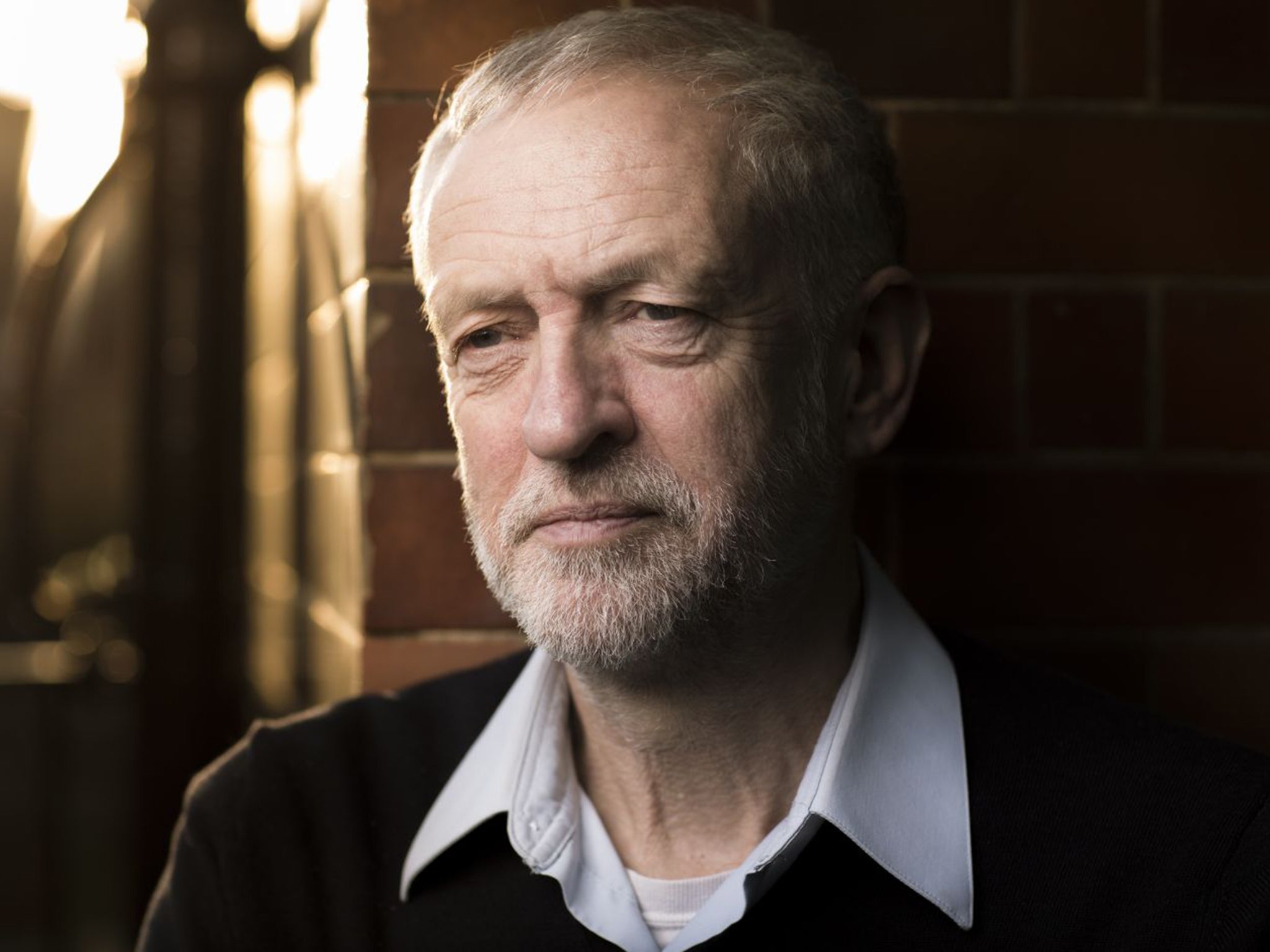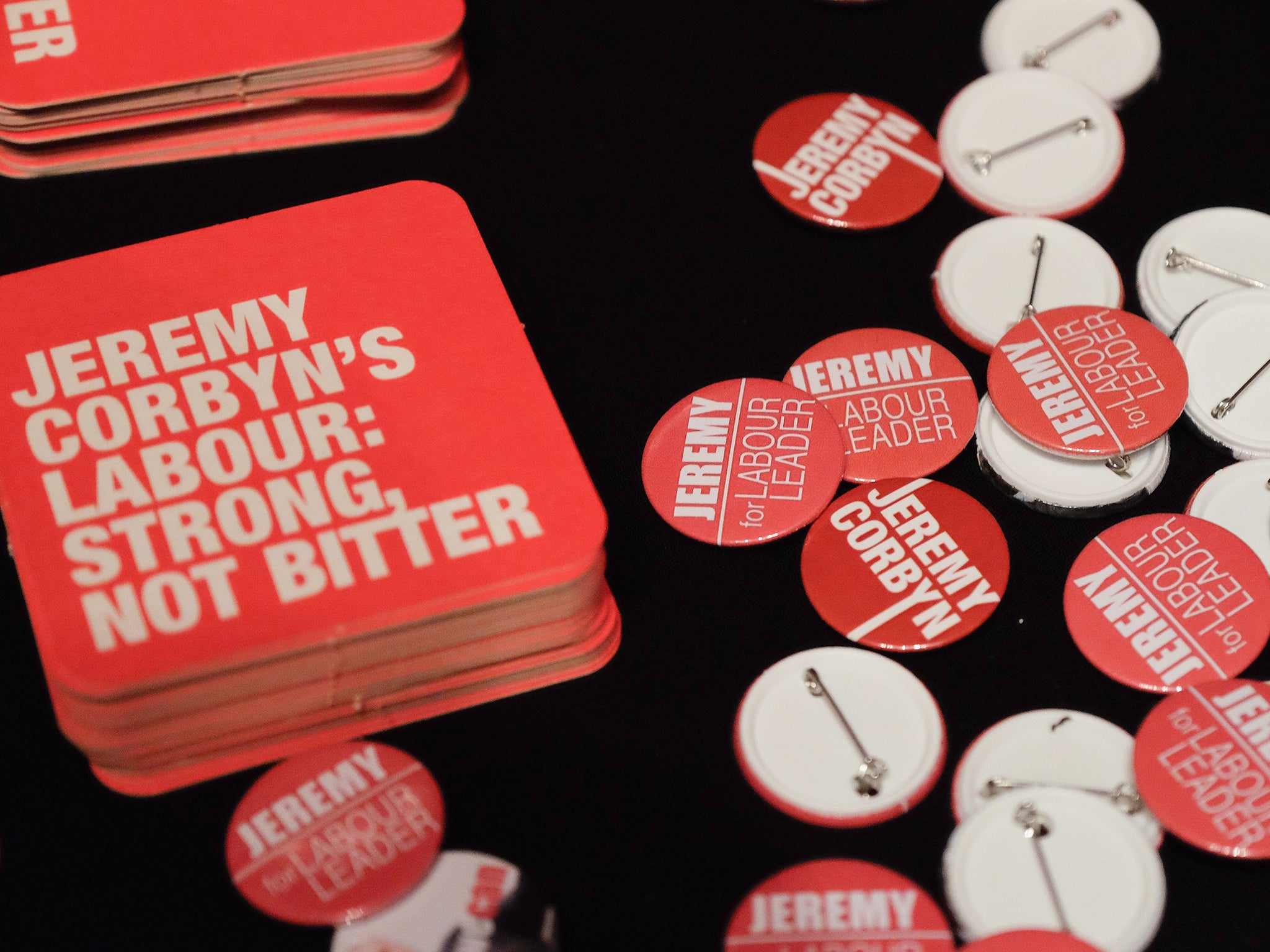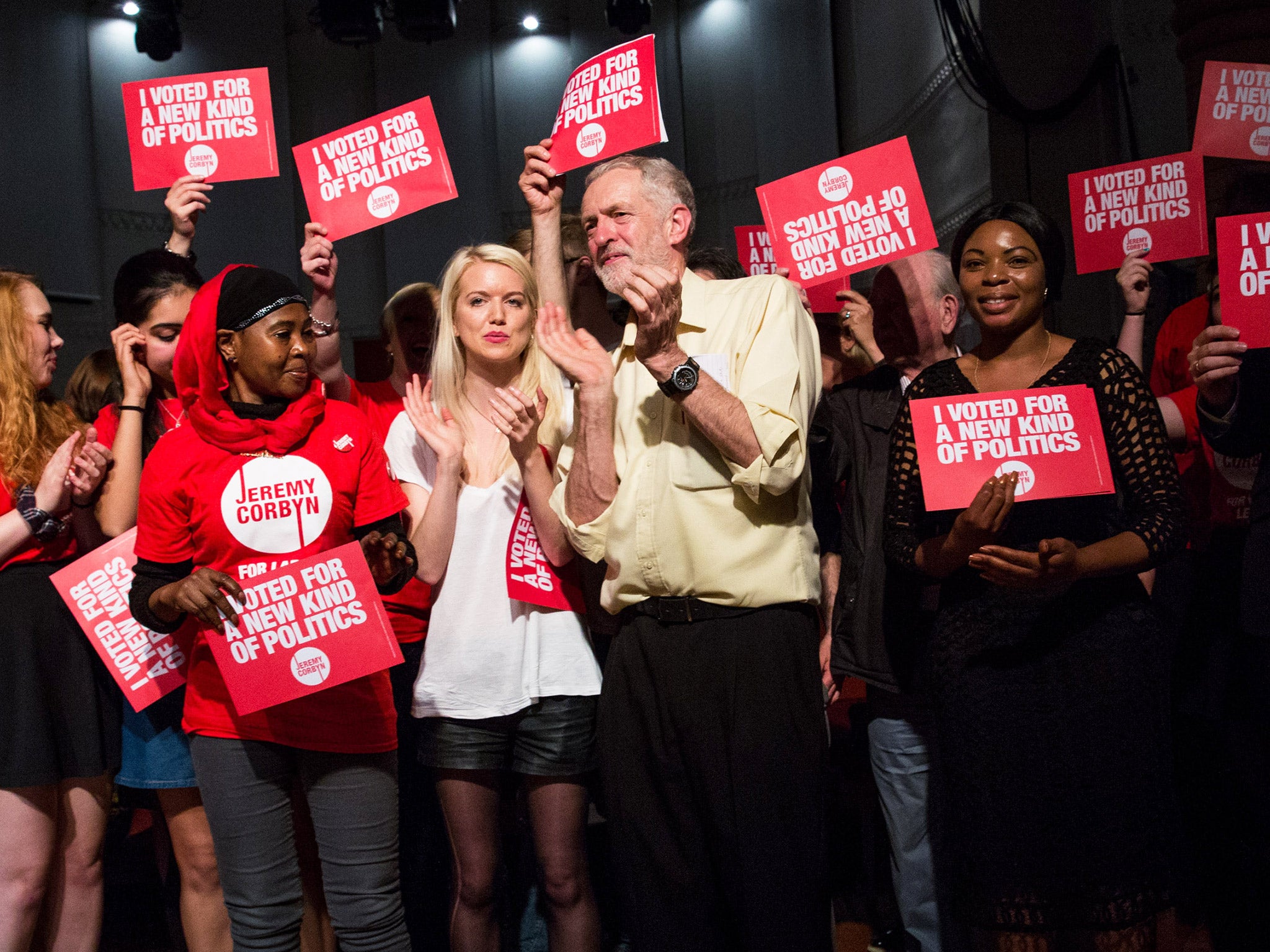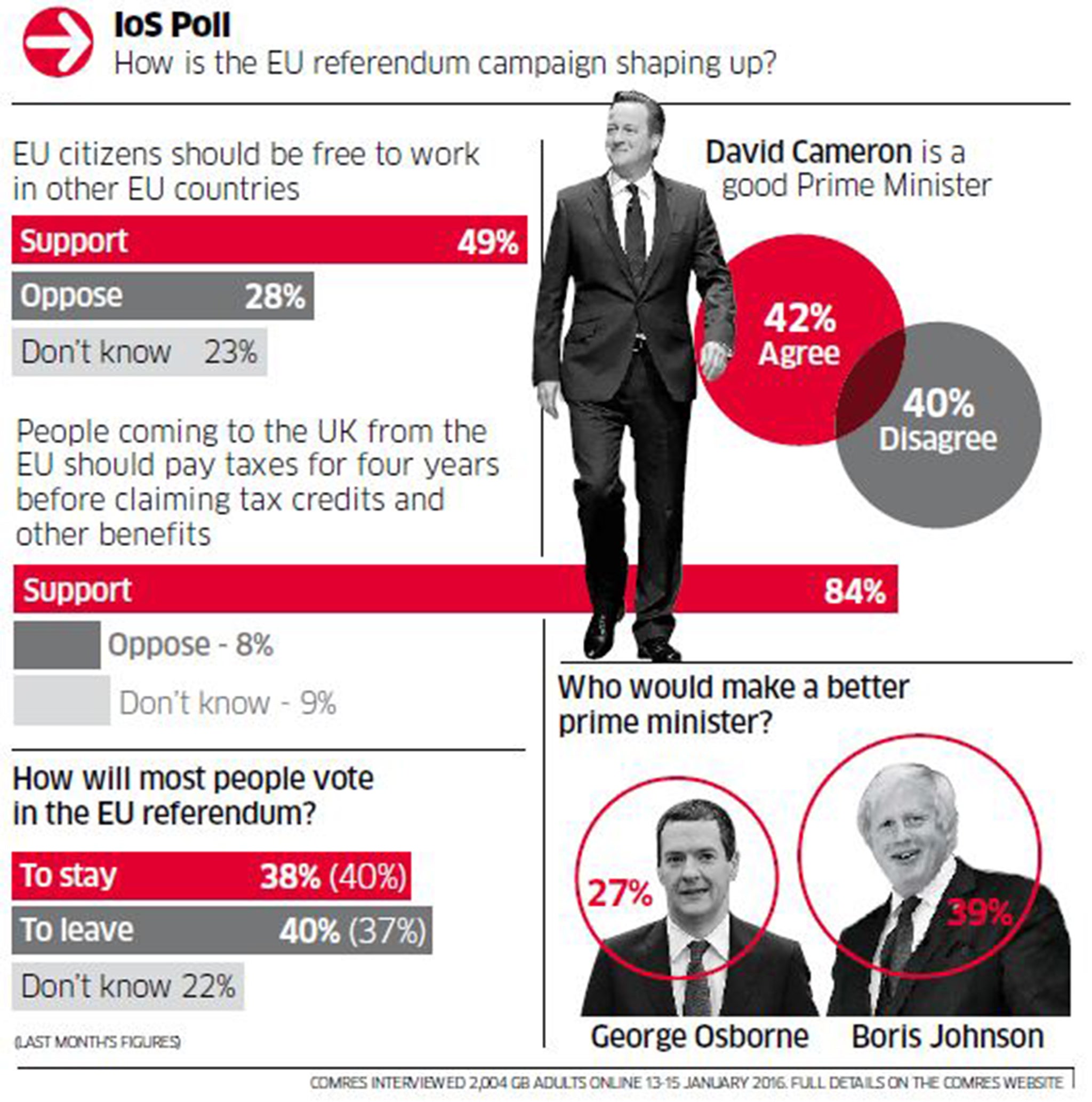Jeremy Corbyn interview: Labour leader on churches, cats and a nuclear-free world
‘I’m basically a very peaceable, calm person’

Your support helps us to tell the story
From reproductive rights to climate change to Big Tech, The Independent is on the ground when the story is developing. Whether it's investigating the financials of Elon Musk's pro-Trump PAC or producing our latest documentary, 'The A Word', which shines a light on the American women fighting for reproductive rights, we know how important it is to parse out the facts from the messaging.
At such a critical moment in US history, we need reporters on the ground. Your donation allows us to keep sending journalists to speak to both sides of the story.
The Independent is trusted by Americans across the entire political spectrum. And unlike many other quality news outlets, we choose not to lock Americans out of our reporting and analysis with paywalls. We believe quality journalism should be available to everyone, paid for by those who can afford it.
Your support makes all the difference.Having ordered a “tea con leche” and a cheese toastie, Jeremy Corbyn sparks into life on his specialist subject: unilateral disarmament. “My views on nuclear weapons are well known and not changing,” he says. “I want to see us move to a nuclear-free world.”
But there is a significant softening in his stance. Speaking exclusively to The Independent on Sunday, he says he now “recognises” that the Labour Party’s existing policy explicitly supports Trident and promises to “accommodate” those who want to vote for its renewal.
A free vote then, surely? He hasn’t made up his mind, he says, but shadow ministers such as Tom Watson and Hilary Benn will not have to resign to side with the Government. “I am not one for clearing decks.”
Sitting in Café Tropical, a tiny Ecuadorian diner in his Islington North constituency, Mr Corbyn was signalling a major step towards giving his shadow cabinet free rein to back the renewal of Britain’s Trident nuclear deterrent – a significant moment in his leadership.
He says he “cannot see circumstances where you could use” nuclear weapons, but wants to draw some of the venom out of the issue and emphasise Labour’s new attack line: accusing the Government of launching a “war on democracy” by undermining trade-union funding of Labour, which he admits will cause a “serious problem” for the party.
Completing a policy one-two, designed to humiliate David Cameron, he also pledges not to nominate a serving politician for an honour.
“I don’t think serving politicians should get honours. I think it’s an honour enough to be elected to a position. I’m not going to nominate any serving politicians for honours.” He says this “certainly” includes political aides.
Does that also mean not giving a peerage to Ken Livingstone?

“I have no plans to. I’m making no nominations to the House of Lords as of now.”
This is Mr Corbyn relaxed – even confident – in his role as the leader of Her Majesty’s loyal Opposition. He is on home turf, round the corner from a community centre where he holds his weekly surgeries. Arriving on an old Raleigh bike, he strolls into the South American café with a llama-wool scarf draped around his neck – complete with an image of Bolivia’s socialist president, Evo Morales.
He chats insouciantly in Spanish to the waitress, a previous visitor to his constituency surgery. Local politics – getting things done – is clearly something he enjoys. As with a local vicar, there is an implicit sense of pastoral duty and conviction. Revealingly, when asked about the challenges of leadership, he refers not to the fact of now being a boss, but the demands on his time. Plenty of powerful people want to see him, but he is insistent on not losing sight of “the community, the ordinary people”. In return, those in the café, at least, say he is “Muy bueno”.
Mr Corbyn, even after root-canal surgery that morning, is friendly and chatty, speaking glowingly of his “admiration” for his wife, Laura Alvarez, his love of camping holidays, sometimes on his own, in East Anglia, and how he communicates with his – nameless – pet cat by whistling 1970s pop songs.
“It’s a black and white cat. I always call it ‘El Gato’, which is just Spanish for cat,” he explains. “When I see the cat I say, ‘Buenos dias, El Gato’. Actually, cats don’t know their name, cats know voices. What he does respond to when I ask him to come in, is the tune of ‘Tie a Yellow Ribbon Round the Old Oak Tree’. I whistle to it. I can’t sing, you see.”
“I was out carol singing the other week, collecting money for Oxfam, and after a while they asked me to stop singing and said we’d rather you hold the bucket as you’re putting people off with the singing.”
The Labour leader also speaks candidly about the continuing influence of his Christian upbringing, his love of classical music and his “regret” over the phrasing – if not the substance – of his remarks on whether a terrorist about to kill innocent people should be shot before they could do so. He admits he offered an unfortunate gift to his political opponents. “Of course,” he says. “Yes. I recognise that problem …. In politics there are those who will not give you the benefit of the doubt.”
Returning to his family’s faith, Mr Corbyn continues: “My dad had quite strong religious beliefs,” he says. “My mum didn’t but her brother was a vicar and her family were very religious and so my mum always said to me, ‘The Bible is the greatest work of literature and you should always read it’, which I did.”
He attended a school which had hymns and prayers every morning – “I know the words to most of the hymns” – and went to church every Sunday till he was 14. “I have huge respect for all faiths. I find faith very interesting, and the power of it.”
He compares the growth of mosques in “hostile” British cities with the flourishing of Christian churches in Victorian Britain. “You have to understand what motivates people. Sometimes faith is the only thing people find welcoming in a hostile environment, if you think of the growth of the English big cities in the 19th century and the growth of Methodism, Baptism and, after the Emancipation Act, the Catholic churches and Anglican churches.”
He says the church offered some kind of solace then, and that mosques and temples fulfil a comparable role now. “You’ve got to understand what brings people together as well as what divides them.” But he says he is a “sceptic” about God in his own life.
There is a piety, though, a gentle certainty, to Mr Corbyn’s politics.
He says he enjoys a “peaceable calm” and rarely gets angry. “Of course I’ve got the same human emotions as everybody else, but I’m basically a very peaceable, calm person and I don’t do politics 24/7, I do other things. I read. I’m reading a book about the development of humankind written by a professor from Liverpool. I’m reading a book about West African family life. I read history and things. I make things at home – I have an allotment. I do other things – I think that is very, very important for everybody.”
Mr Corbyn also reveals that he will not accept the money raised for him to buy his “object of desire” – a £475 aluminium-framed Raleigh Criterium. Instead, he will donate the money to charity, and buy the bike himself for his 67th birthday, in May.
He is evangelical about the benefits of his own election. “My election has meant actually debating nuclear weapons – and debating the point in having them. If I wasn’t elected, this debate wouldn’t be happening.”
He confirms that Labour’s policy on Trident will not be changed until the party conference in September, acknowledging it will come up in Parliament at a time of the Government’s choosing, possibly in March.
“I recognise the party has an existing policy which is not the same as [mine] .… I will obviously try to accommodate opinion within the parliamentary party. I haven’t formed in my mind exactly how we are going to do that yet, but I fully recognise there is a debate going on.”
Rather cryptically, he says the decision may not be “binary” – either in favour or opposed to Trident – suggesting a compromise could emerge in which Labour supports the renewal of Britain’s nuclear strike capacity while reducing the stockpile of warheads. The pragmatist in Corbyn seems to want, above all, to satisfy himself that the direction of travel is towards fewer nuclear weapons. He wants to adhere to the non-proliferation treaty’s requirements for Britain to take steps towards disarmament. “Britain has reduced the number of warheads, no question about that. But the four-boat Trident option increases the warhead capacity ... to fully arm them.”
Mr Corbyn’s Labour critics will delight in the change in stance, after becoming alarmed at plans to fast-track a change to Labour’s Trident policy, to oppose the deterrent, before an expected vote in March.
But this is tactics, not strategy. Mr Corbyn still wants to change Labour’s policy – only now he accepts it won’t happen until the autumn. The Labour leader is learning to compromise in the pursuit of power.
But he is “worried” that the Prime Minister is stacking the cards against him. “Cameron is rebranding British politics slowly into the American model. A healthy democracy means you don’t exclude people because their voice can’t be paid for. A healthy democracy isn’t about the amount of money you spend.”
Asked if Mr Cameron was trying to “skew the system permanently”, Mr Corbyn says: “That’s what it looks like to me. If you add it all up, it’s not good.”

He has immersed himself in the causes of the recent floods, speaking of the need for better upland management, advocating that more be done to ensure rainwater is held where it lands, rather than flowing downhill. But it’s a lesson he learned when young. During his upbringing in Shropshire, his father used to say: “If they hadn’t chopped down all the trees in Wales, there wouldn’t be so much flooding in England.”
Asked if he thinks there might be scope to adopt a bipartisan approach with the government on any issues, the environment, for example, he says: “On the environment, I think the recent flooding has got to be a wake up call to a lot of people. The environment has dramatically got worse. There are extreme weather patterns, the el Nino effect is massive.
“The obvious antidote to a flood is to build a barrier and a dam, of course, but actually, unless you look at the issues upstream and look at land management (you won’t solve it).”
Citing Geoffrey Lean’s recent article in the IoS on Pickering, in Yorkshire, and the need to use the uplands as a sponge to delay water running downhill, he says “I saw that. Very good stuff. Every year Shrewsbury used to get flooded… My Dad said ‘If they didn’t chop down the trees in Wales, England wouldn’t get flooded so much.’ That was fifty years ago. Now on the hills you get compacted earth, the run off.. It’s a question also of environmental education, of bringing our children up to understand the limits of what we can do and the contribution we can all make to the environment. So I have tried to reach out on an all-party approach on flooding and maybe there’ll be no more floods, we don’t know, and I’m more than happy to take part in a discussion.
Mr Corbyn is going to need all the help he can get, according to today’s ComRes poll for The IoS.

Only 22 per cent say Mr Corbyn would make a good prime minister; 56 per cent say he would make a bad PM. The poll is also discouraging for Mr Corbyn’s attempt to change Labour policy on Trident. The poll tested four different statements and found that Trident is supported in each case. “Britain renewing its Trident programme as long as other countries have nuclear weapons” was supported by 54 per cent and opposed by 22 per cent.
Revealing the devisiveness of the issue, the sacked former frontbencher Michael Dugher warned Mr Corbyn that overhauling Labour’s position on Trident would end in “electoral disaster”.
He said: “We should be taking the fight to the Tories and not picking another fight with ourselves. The decision to open up a divisive debate within the party about the renewal of Trident is such an unnecessary distraction.”
Mr Corbyn is also at odds on the issue with all living former Labour leaders – from Neil Kinnock to Ed Miliband. On the subject of his predecessor, Mr Corbyn reveals that he has spoken to Gordon Brown once since winning the Labour leadership – to discuss tax credits – but has not had any contact from Tony Blair.
“I’ve called Gordon. He’s fine. We had quite a good chat about tax credits. We agreed!”
But regardless of what Labour’s bigwigs think about his leadership, in Islington Mr Corbyn is a genuine celebrity. As the interview draws to a close, the Labour leader is swamped by the café’s staff asking for selfies. It’s this personal interaction which fuels Mr Corbyn’s self belief, and there’s no doubt he now has his eye on the main prize.
Asked what would be his first priority in Downing Street, he says the “scandal” of homelessness. “Let’s address the fundamental need of everybody to have a roof over their head. And I mean everybody.”
Join our commenting forum
Join thought-provoking conversations, follow other Independent readers and see their replies
Comments